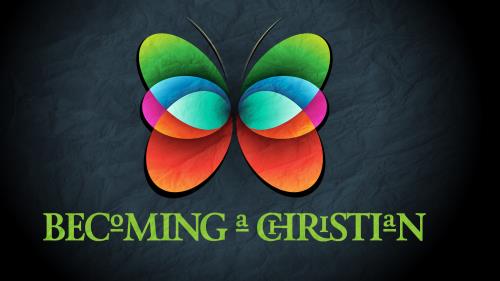-
How Far Is Too Far?
Contributed by Dennis Lawrence on Nov 28, 2017 (message contributor)
Summary: Can someone go so far that God can’t redeem them? What can we learn from King Manasseh?
How far is too far?
How much sinning is too much sinning? How bad is too bad for someone to be and to lose hope of a future with God? How late is too late to come to oneself and reconcile with God? How simply disgusting and awful is it possible to be and turn to God?
Christians are sensitive to these issues. Christians worry about these issues, too, from time-to-time, at least. Christians fear going too far and having committed the ‘unpardonable sin’ and being unable to find their way back to God.
Please turn to 2 Chronicles 33, and let us read together and consider together what we can learn from one ancient example. Once there was an ancient king named Manasseh and he was not the kind of person who seemed to have much hope for a future with God.
v. 1- 10- let’s think about what we learn about Manasseh in these verses.
- 12 years old when he began his reign- he was very young and he had the longest reign of a king of Judah- 55 years, until he was about 67 years of age.
- He was evil- depraved, base, amoral (not only immoral), wicked. As we read, we can see in what ways he was evil.
- He encouraged worship of idols of the heathen. He believed that all roads lead to heaven- we would call him a pluralist and he’d fit in very well in today’s Canada. If this were today, he would have allowed, or encouraged, Buddhist statues to be everywhere. He would have candles all over the place- not for light or effect but for worship. He would encourage people to be free thinkers and to follow their hearts to god. He would have courses offered to help people to find themselves, to plumb their inner depths, to explore their spirituality and that of leaders around them as a current seminar will explore the spirituality of Pierre E. Trudeau at McGill University.
- He rebuilt altars that had existed and which his father had removed, so that people could revert to past practices of materialism, self-help, and worship of the sun, moon, and stars. Astrology became a dominating force in the nation again, and people governed their lives by the movement of these heavenly bodies.
- He built altars in the Temple. He used the place where people knew to meet God and offered them all possible ways to meet god, as seemed good to them all. Were he alive today, he’d bring New Age beliefs into the church, because many like them and believe them. He would bring the health and wealth gospel ideas into the church, because these encourage people and help to keep people positive, hopeful, and trying very hard, even though they are not the message of the gospel. He would bring a focus on ‘you’ and ‘me’ into the church, rather than a focus on Jesus and God; it’s much more pleasant to be centred in the human than to be centred in the divine- it’s much less threatening and requires much less change in belief and behaviour. The already existing churches became centres where unholy beliefs would be melded with scriptural teachings and where some would be kept away from God through those.
- He sacrificed his own children on an altar. This was always a heinous practice to God and God’s people and it involved the idea of invoking the pleasure and favour of a god by giving to him what was considered your greatest treasure- your children. Your hope for a future would be in the children, so there was supposed to be a certain depending on god through doing this because you’ve given up this expression of the future. Were this today, of course, it would involve devaluing of human lives as we see in approval of abortion and the increasing approval of euthanasia. Care of the elderly would become an issue, as it will as we go forward into several decades with a very high number of seniors, when we get there. In some societies, it’s normal to expect seniors to simply go off and die once they have outlived their usefulness. Fortunately, this is not where we’re at now, but some discussions lead us to wonder where some would go, if permitted. With children, more and more dependence on the state to know what is right and good for children would arise; this is not simply in the expression of basic educational norms that are necessary, but goes beyond into regulation of all aspects of care of children.
- He consulted mediums, fortunetellers, and sorcerers. All of this was forbidden from the earliest times but there is a certain appeal to these because they are so very emotional and sensual and mysterious. Today, this would translate into the seeking and following of personal horoscopes (I hope you know that Christians don’t do this!), seeking fortune tellers who might read tea leaves or tarot cards, using the ouija board (I had a frightening experience with that when I was 18 years of age and that was more than enough).

 Sermon Central
Sermon Central



